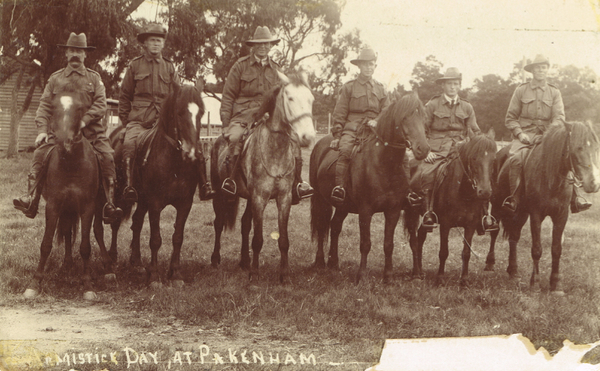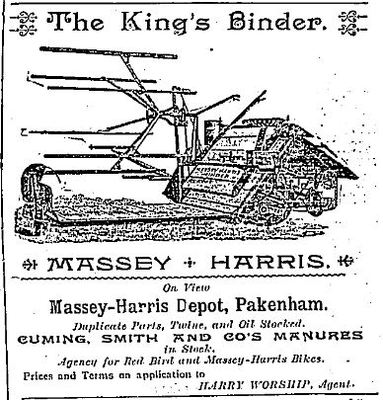
By Garry Howe
Local historian and author Patrick Ferry is spearheading a campaign to restore some dignity to the resting place of much-loved Pakenham South pioneer and war hero Harry Worship.
For the past 78 years he has been lying in an unmarked grave at Springvale Cemetery.
The lamentable circumstance of Harry’s final resting place only came to light during research into Mr Ferry’s book A Century After The Guns Fell Silent, chronicling the stories of 105 World War I soldiers remembered on war memorials around the Pakenham district.
The book will be launched at Pakenham’s Remembrance Day ceremony on Sunday 11 November, marking 100 years since the signing of the Armistice to end the war in 1918.
Mr Ferry hopes to be able to add a headstone or similar memorial to Harry’s grave and has enlisted the help of the Pakenham community in his quest.
The Gazette has agreed to assist, providing a limited edition Sands of Gallipoli plaque to raffle at the Remembrance Day ceremony. A portion of revenue from a commemorative Remembrance Day Centenary liftout in the edition of 7 November will also be donated to the cause.
It’s a fitting gesture, given that Harry was one of the Gazette’s first advertisers.
Harry was born in England, the son of a surgeon. He grew up at Manor House in Kent amongst servants and chambermaids and attended the prestigious and exclusive Marlborough College.
When Harry arrived in Australia in August 1898 he was described on the ship’s passenger list as a “gentleman”.
He became a pioneer of the Pakenham South district, acquiring land on McDonald’s Drain Road not long after the draining of the Kooweerup Swamp. He carved out a living on his Good Hope mixed farm engaging in dairying, livestock, poultry raising and potato growing and was also the local agent for Massy and Harris farm equipment, which advertised in the Berwick Shire News and Pakenham and Cranbourne Gazette in September 1909, the year the paper was established.
Harry was involved in establishing the Pakenham Fruit and Horticultural Society and in 1912 helped to organise the first Pakenham Show. He served on the Mechanics Institute committee and was a patron of the Pakenham Football Club.
In 1913 he was petitioned by a number of leading citizens to stand for a vacancy on Berwick Shire Council but ultimately decided not to stand. He was described as “a friend to everyone”.
Harry was one of the first in the district to enlist after the outbreak of World War I in 1914, putting back his age to 43 years and 11 months so as to meet the maximum age requirement of 44.
He saw action in Gallipoli and France in his 1182 days of service and was given a hero’s welcome when he returned to Pakenham South in November 1917. He rode in a procession to mark the Armistice a year later and in 1919 was elected vice-president of the Pakenham RSL when it was formed. Unfortunately, while he was away, Harry’s farm had run down and was operating at a dead loss, due to heavy flooding and labour shortages. In another blow his wife Emily Bunker of Pakenham died of influenza.
The Great Depression was the final straw and, despite being described as “a good farmer”, Harry had to sell up. He was given a fond farewell by residents of Pakenham South.
Harry remained in the district for some time, working at Toomuc Valley Orchard, taking a horse and cart into Pakenham each day to collect the groceries and mail. He later moved to Melbourne and died at Box Hill in 1940.
He had only five pounds in the bank and a friend applied for assistance to have him buried at Springvale Cemetery. The Pakenham RSL was represented at his funeral by Jack Ellett and Arch Blackwood, fellow Pakenham South Diggers.
The final tribute to Harry was paid by the Gazette, which in his obituary described him as “well known over a wide area and held in high esteem”.
Mr Ferry will be guest speaker at the Pakenham Remebrance Day ceremony at 11am on Sunday 11 November, when his book will be officially launched. The project was undertaken under the auspices of the Berwick Pakenham Historical Society, of which he is a member, and was funded by the Federal Government.







